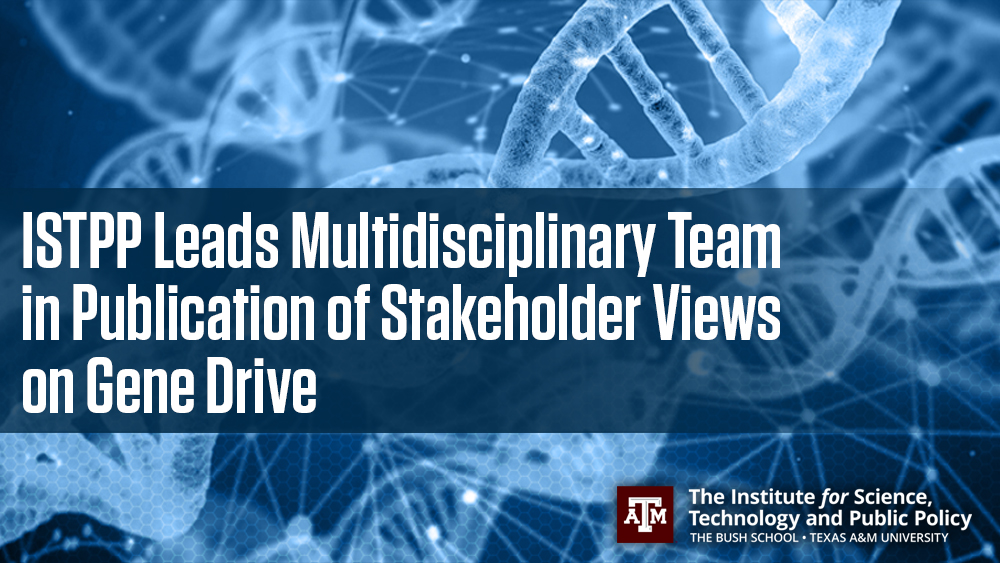
A multidisciplinary team of researchers from Texas A&M’s Institute for Science Technology and Public Policy (ISTPP) and AgriLife Research and from the University of Texas Southwestern Medical Center have published their research, “Stakeholder Views on Engagement, Trust, Performance, and Risk Considerations About the Use for Gene Drive Technology in Agricultural Pest Management” in Health Security. Using original survey data collected as part of a USDA-funded project, the research team examines the views of stakeholders about an emerging genetic technology called gene drive. Gene drive is being lab-tested to control mosquitoes that carry malaria. Under limited biological circumstances, gene drive could potentially be used to manage agricultural insect pests and weeds. Gene drive, should it work, would change the normal passing down of genetic traits from parents to offspring so that certain traits are intentionally passed along to most or all of the offspring.
The study team investigates what Texas stakeholders think about potentially using gene drive to manage agricultural pests. People from organizations that have an interest in agriculture received some information about gene drive and then asked questions about what they think. The majority of stakeholders trust regulatory agencies to oversee gene drive and are concerned about risks and scientific uncertainty. The stakeholders think that both product safety and how well it works are very important, but that safety is slightly more important. Even with the potential risks and the unknowns, the majority of stakeholders considered gene drive to be a good idea for managing agricultural pests.
Goldsmith, Carol L., Ki Eun Kang, Elizabeth Heitman, Zach N. Adelman, Leah W. Buchman, David Kerns, Xinsheng Liu, Raul F. Medina, and Arnold Vedlitz. 2021. “Stakeholder Views on Engagement, Trust, Performance, and Risk Considerations About the Use for Gene Drive Technology in Agricultural Pest Management.” Health Security 20(1). DOI:10.1089/hs.2021.0101

